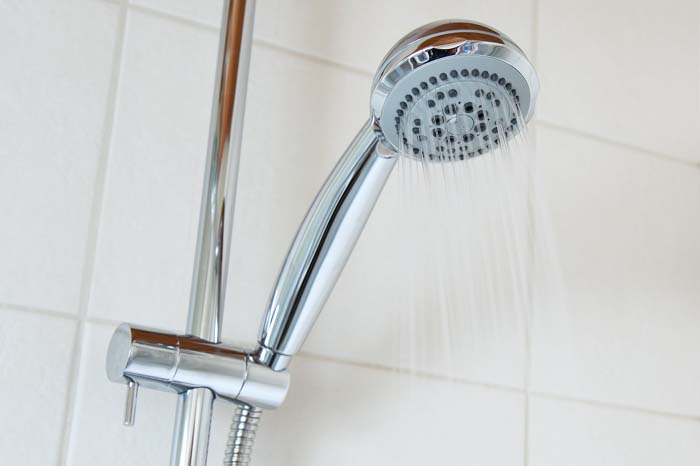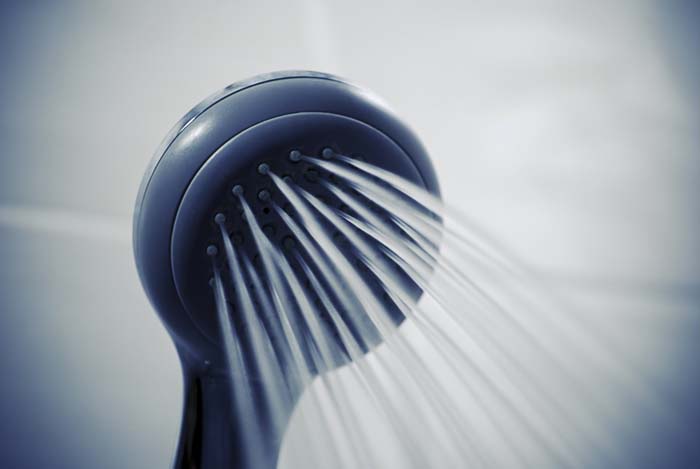
Many people living in hard water areas use water filters for their sinks or pitchers. This ensures that the water they drink is safe, but how about the water that comes out of the shower? Unfortunately, many people don’t realize that the same water with an awful flavor can seriously harm their hair, nails, and skin when they shower. This is why high-quality shower filters are important.
Hydrogen sulfide, chlorine, sediments, VOCs, heavy metals, and minerals are some things you can find in tap water. Some of these pollutants are dangerous. This is because they aggravate skin conditions and dry up hair. You can get clean water to shower in by using a shower filter, which can eliminate many of these toxins. A simple way for homeowners to lessen the risk of skin damage and restore body moisture is by using shower filters.
Here are some of the best types of shower filters.
KDF Shower Filters
While charcoal filters are more affordable, KDF filters are a little more costly. KDF filters make use of copper-zinc material. They use a redox chemical to purify the water, eliminating hydrogen sulfide, chlorine, and metals.
With a background in chemistry, it’s easier to make sense of the redox process. Essentially, the kinetic degradation fluxion media changes the chemical composition of harmful contaminants by transferring electrons from them. Redox neutralizes pollutants. Additional heavy metal protection is provided by filters and showerheads that use kinetic degradation fluxion filtering within multilayer cartridges.
Showerhead Shower Filter
You can upgrade your showerhead to one with a built-in filter by simply replacing the head. They look like regular showerheads. There are also portable, removable versions with built-in filtering features. They work wonderfully with removable spray nozzles.
Unfortunately, the filtration performance of these portable devices is generally inferior to that of an inline filter. Still, some use multilayer filtering materials, significantly increasing their functionality. You can also get aroma filters, which are compatible with specific models. These also make the water smell lovely. Those whose water is hard and has an eggy odor may find this feature particularly helpful.
GE Universal Shower Filter
For under $20, this GE shower filtration system is a great pick if money is tight. It filters out chlorine and some sediment as well. It fits any standard shower pipe or head, and the filter lasts six months.
Inline and Showerhead Shower Filter Set
Combining these settings is also possible if you’re looking for maximum filtering power. Because they use standard fittings, you can connect these devices easily. An inline filter will filter out the majority of contaminants as soon as they enter the water system. An integrated filter removes any remaining pollutants to ensure that only clean water gets to the showerhead.
Changing the inline filter every 650 to 1,300 showers is still recommended. But this modification should make the showerhead filter last longer.
Multilevel carbon shower filters
Multilayer carbon filters use many layers of carbon and other media to remove harmful contaminants like fluoride, VOCs, chlorine, and lead from water.
Each successive layer addresses pollutants of various kinds. Carbon can soak up a lot of harmful substances, like unpleasant odor and taste, silt particles, chlorine, and VOCs. One popular way to get this carbon is to use activated coconut charcoal, which is granulated.
Compared to other options, multilayer carbon filters are more budget-friendly. Charcoal filters aren’t great at eliminating chlorine, but hot water makes them less effective.
Vitamin C shower filters
Though its effectiveness is questionable, mixing vitamin C with the water supply can help neutralize chlorine. While dechlorinating the water, vitamin C powder is added to the stream through the pellets in the cartridge or handle.
Some think these filters are pointless as they don’t lower chlorine levels. When it comes to improving hair and skin health, however, vitamin C helps boost collagen formation.
Incorporating vitamin C into your shower routine is highly recommended. For an additional antioxidant boost, purchase a cartridge with a vitamin C layer or add a vitamin C filter after your inline filter.
Inline Shower Filter
The inline shower filter describes the little container that snaps into place on the pipe just behind the showerhead. After connecting the filter to the tube, attach the showerhead to it.
The filter cartridges in this shower are big and easy to replace. They include multiple levels of filtration. Calcium sulfite, silver, ceramic balls, vitamin C, and carbon all trap disinfection by-products (DBPs), bacteria, and other harmful substances.
Inline shower filters are easy to clean and maintain. You may reach the filter cartridge through the split in the body of the filter.
Do shower filters really work?
A shower filter is a well-made investment to protect skin and hair from the minerals, metals, and chlorine lurking in tap water. This is the area where we are most exposed to it.
Shower filter that removes the most contaminants
Filtering media, quality, and design are the three most important factors in determining how well a shower filter works. You can greatly improve the quality of your shower water by using a high-quality shower filter. This is to eliminate or reduce chlorine and other contaminants. Common side effects of chlorine and other pollutants include brittle hair, itching, and dry skin, all of which these products can help reduce.
Shower filters work wonders at eliminating chlorine, but other contaminants may be more or less resistant. Picking a shower filter that gets rid of the harmful substances in your water supply is crucial. Find a filter that uses heavy metal-specific media, for instance, if you reside in a region where contaminants are prevalent.
It’s important to remember that reverse osmosis systems or whole-house water filter systems may remove much more impurities from water than a shower filter can. Think about looking into these all-inclusive filtering alternatives if you care about the water quality in your home, both for drinking and other applications.
 Shower filter that’s best for chlorine and heavy metals
Shower filter that’s best for chlorine and heavy metals
- In-line Shower Filter
An activated carbon filter best serves your shower head. You won’t even need a separate showerhead with this in-line model. You can safely shower after using granular activated carbon to eliminate rust, chloramines, bacteria, heavy metals, chlorine, and other contaminants. Also, it can make the filtered shower water softer. This will leave your hair feeling silkier than before.
Shower filter remove calcium and magnesium?
- Water Softeners
If your water supply is too hard due to too many minerals, like magnesium and calcium, consider installing a water softener. Before a water softener can do its job, you must remove any debris from the water. After that, sodium-ion-charged resin particles filter the water. Beads with a negative charge like these draw in minerals with a positive charge. Minerals cling to the beads, allowing the water softener to release its softer water into your house.
Do vitamin C shower filters really work?
There may be some advantages to using a vitamin C shower filter.
- People whose water supplies include incredibly high chlorine concentrations may also benefit from vitamin C shower filters. Filters are helpful in these situations because they lessen contact with the chemical.
- One benefit is that they can soften the water in the shower, which is great for hair and sensitive skin. Lessening the amount of chlorine and other dangerous compounds that build up on your hair and skin can help alleviate irritation, especially if you have dry or sensitive skin.
- Lastly, including a skin-nourishing vitamin in one’s shower routine appeals to some. Incorporating aromatherapy fragrances released by essential oils into the filter creates a spa-like experience in your home.
What to look for when buying a filtered shower head?
Cost
Remember that even though the cost of your water filter may not be exorbitant at first, you may have to change it or its interior cartridge every 6 months. When determining how much money you can spend on shower filters, including the cost of replacing cartridges and filters.
Installation
Putting in a high-quality shower filter is usually a breeze. Some may require more effort than others. Before you buy, make sure you understand the installation process.
Style
A wide variety of high-quality shower filters are available. Some are available in a handheld style, some are integrated into fixed showerheads, and others resemble tanks you can attach to your showerhead. The effectiveness of each style is comparable. It all depends on the style of your shower, though.
Features
Take a look at the features when you’re choosing a filtered showerhead. Pulsating, power massage, and rainfall are just a few features available on shower filters. Adding this to your shower might make it more relaxing and opulent.
Filtering capabilities
Find out what’s in your water and prioritize features like gallons of use, water pressure, water softener, shower filtration, or flow rate when shopping for the best shower filters. Different filters are better at removing different sediments and pollutants.
Lifespan
Filters have a finite lifespan. A certain amount of time passes before it is necessary to replace even the best shower filters. It is best to change most choices every 6 months. Because shower filters lose some effectiveness with time, it’s crucial to change them out as soon as possible.
What does the Jolie shower filter remove?
If you have rashes, changes in hair color, or even dry hair from chemicals in your shower water, the Jolie shower filter can help. It removes heavy metals, chlorine, and other pollutants.
Conclusion
The type of installation and the area where you’ll install the shower filter are other important considerations when purchasing. Although most shower filters work best when installed above the showerheads, you can also install them in the water supply tank. While this is going on, installers have the option of using either electronic or magnetic shower filters.
